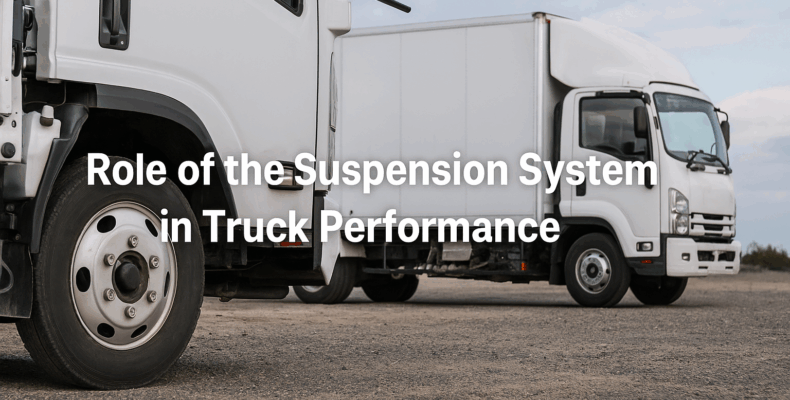How Suspension Systems Boost Truck Performance and Ride Quality
The suspension system is one of the most important parts of a truck. It directly affects ride comfort, stability, and cargo safety. Whether you run long-haul logistics or local deliveries, suspension performance can make or break your operation.
In this guide, we’ll explore how the suspension system works, what types are used in Japanese trucks, and how you can select a vehicle with a system that meets your business needs.
If you’re planning to import a used Japanese truck, understanding suspension systems is essential.
1. What Is a Truck Suspension System?
A truck’s suspension system connects the wheels to the chassis. It includes:
-
Springs (leaf or coil)
-
Shock absorbers
-
Linkages
-
Axle assemblies
This system helps absorb road impact, maintain traction, and keep the load stable. Without proper suspension, even the best engine or transmission won’t ensure performance.
2. Why Suspension Quality Matters for Used Trucks
Japanese used trucks are known for their durability, but buyers must check suspension condition before purchase. Here’s why:
-
Reduces road vibrations for the driver and cargo
-
Improves cornering and handling
-
Protects the chassis from excessive wear
-
Increases braking efficiency
A well-maintained suspension system results in lower repair costs, fewer accidents, and smoother delivery runs.
3. Types of Suspension Systems in Japanese Trucks
Japanese truck manufacturers like Hino, Isuzu, Mitsubishi Fuso, and Toyota use various suspension setups, depending on vehicle class and purpose.
Leaf Spring Suspension
-
Common in heavy-duty trucks
-
Durable and inexpensive
-
Ideal for carrying heavy loads
-
Easy to repair
Air Suspension
-
Found in modern medium- and heavy-duty trucks
-
Provides better ride quality
-
Adjusts automatically to the load
-
Minimizes damage to fragile cargo
Torsion Bar or Coil Spring
-
More common in light-duty trucks
-
Great for city delivery vehicles
-
Offers responsive handling
Each type has strengths. Choosing the right one depends on how and where your truck will operate.
4. Signs of Suspension Wear to Watch Out For
Used trucks with worn suspension can pose serious risks. When inspecting or buying, look for:
-
Uneven tire wear
-
Sagging chassis or lean
-
Excessive bouncing after hitting bumps
-
Noisy suspension (clunks or squeaks)
-
Oil leakage from shock absorbers
If you notice any of these issues, ask the exporter about the truck’s maintenance history.
5. Why Japanese Used Trucks Are Still a Smart Choice
Despite their age, many Japanese trucks remain reliable due to strict inspection systems in Japan. High-quality brands like Hino Ranger, Isuzu Elf, and Mitsubishi Fighter often come with well-maintained suspensions.
Moreover, some exporters offer vehicle reconditioning, replacing worn-out shocks or bushings before shipment.
6. How to Choose a Reliable Exporter
Working with a professional exporter can save you from buying a truck with hidden suspension issues. Choose exporters that:
-
Provide detailed inspection reports
-
Share clear photos of the undercarriage
-
Offer reconditioning or repair services
We recommend checking out this trusted list of companies based in Japan:
👉 Top 5 Trusted Japanese Used Truck Exporters for Global Buyers
These exporters have experience in supplying high-quality trucks to customers all over the world.
7. Conclusion: Don’t Overlook the Suspension System
Suspension affects every part of your truck’s operation — from driver safety to cargo protection to fuel efficiency. Before importing, take time to understand what system best suits your needs.
And most importantly, trust a professional exporter to guide you.
Here’s the link again to the top exporters in Japan:
👉 https://everycar-review.com/2023/12/09/top-recommended-japanese-used-car-export-companies-for-international-customers/
A smooth ride starts with the right suspension — and the right partner.
